How Long Do HVAC Systems Last on Average?
Enjoy reading the latest DIY articles and saving money?
Receive our latest helpful hints, tricks and savings, directly to your inbox.
Posted February 1, 2021
HVAC is an acronym for heating, ventilation, and air conditioning. These systems, present in all homes, are primarily responsible for heating and cooling your home. The systems are also responsible for filtering the air in your home, as well as moving air back and forth between your residence’s interior and exterior. If you own a home, you also own an HVAC system that can be made up of varying components. Eventually, these systems (or part of them) will need to be repaired or replaced. But how long do HVAC systems last?
Continue reading to learn the answer to this pressing question, as well as other useful information on HVAC units.
How Long Do HVAC Systems Last?
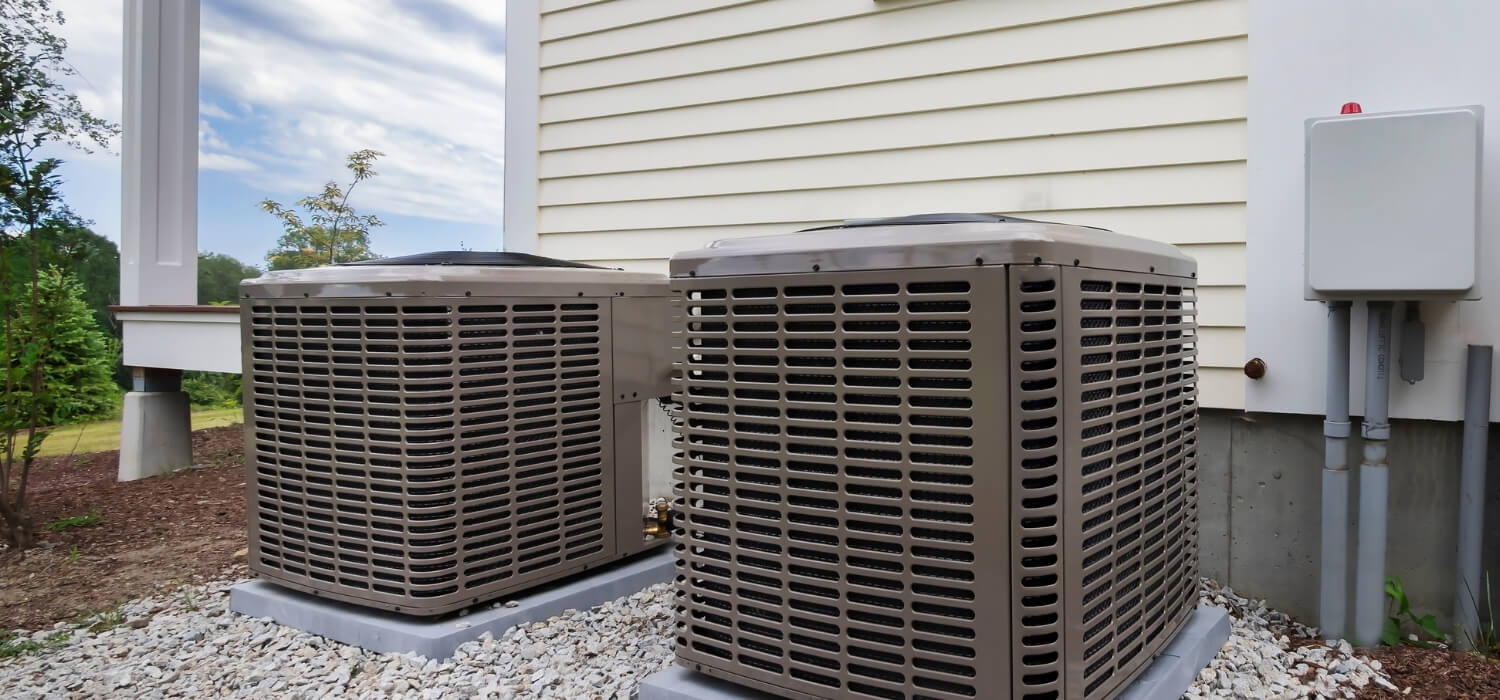
How long an HVAC system will last depends on many different factors. The type of system you have, where you live, and how well maintained its kept are significant considerations. Generally, however, you can expect an HVAC system to last upwards of ten years.
How Long Different HVAC System Components Last
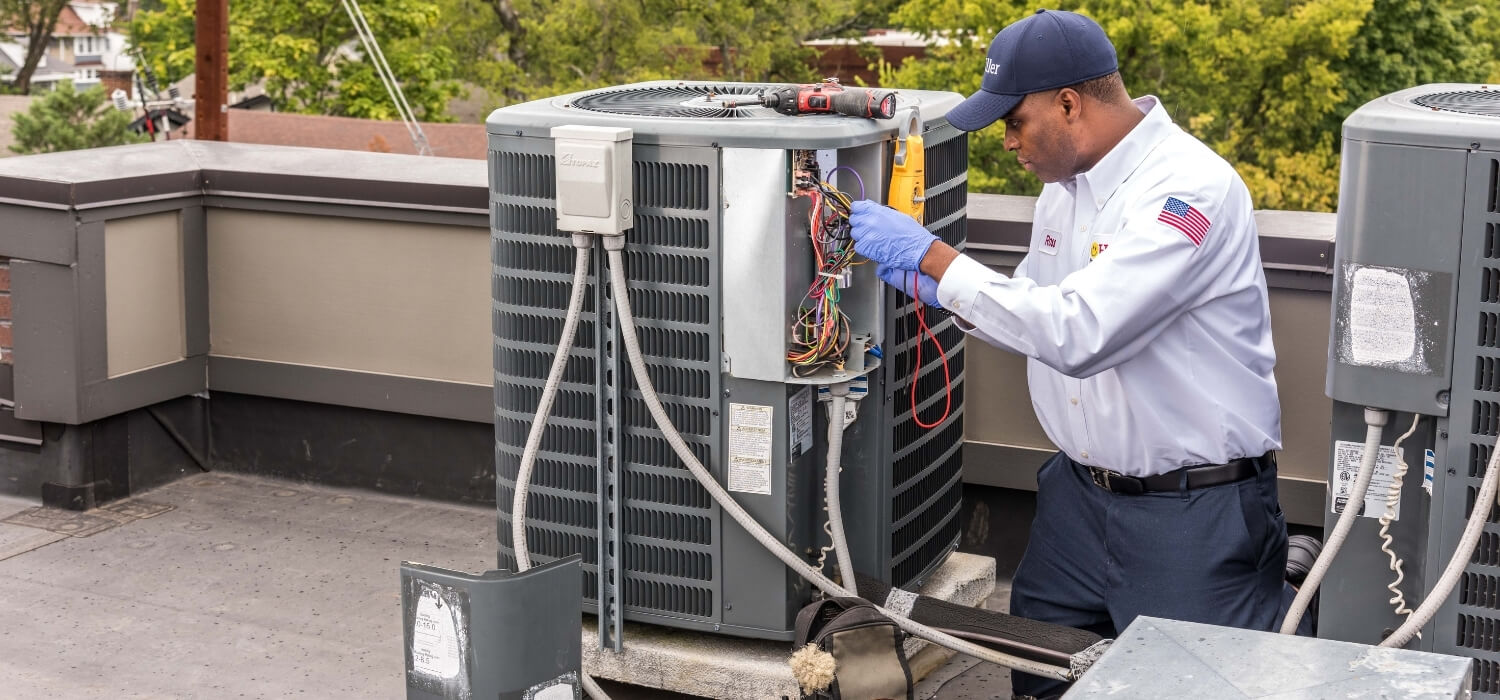
An HVAC system is comprised of many different components that help it heat or cool your home. Each part has a different base lifespan. This basic lifespan can be affected by other factors, as discussed below.
Furnace
A furnace helps provide heat to your home. Typically, a furnace or a boiler is used for heating. The primary difference between the two is that a boiler uses steam or hot water while a furnace uses gas or oil.
A furnace has an average lifespan of 15 to 25 years. The unit is typically replaced when the heat exchanger begins leaking. Proper installation and choosing a furnace size appropriate for your home are significant considerations in how long the unit lasts.
Boiler
A boiler is an alternative option in how heat is provided for your home. It uses hot water or steam to operate.
The average lifespan of a boiler is between 20 and 35 years. Like with a furnace, a boiler is generally replaced when the heat exchanger begins leaking.
AC Unit
An AC unit is what provides air conditioning to your home. These units are usually found outside your home and look like a large box with a fan inside.
AC units last about 15 years in most circumstances. However, people living in coastal areas will find their units deteriorate much faster because of exposure to salt. In regions near saltwater, an air conditioning unit will only last between seven and ten years.
Air conditioners are usually replaced when the compressor fails. If the condenser develops significant problems, such as leaking or corrosion, it’s also recommended you replace the unit.
Heat Pump
A heat pump lasts an average of 16 years but could fail after only ten. In coastal areas, a heat pump may last only seven years. Its lifespan is shorter than many other components because a heat pump continually runs throughout the year.
When the weather is cold outside, a heat pump will extract any heat found in the environment and transfer it into your home. During hot weather, the opposite is true. A heat pump will remove any excess heat in your house and move it outside to help cool your home’s interior.
Ductless Mini-Splits
A ductless mini-split is capable of providing both heating and cooling to a home. They can last anywhere from 10 to 30 years but will have a significantly lower lifespan in coastal areas.
Thermostat
A thermostat is responsible for measuring the temperature inside the home. This is how your HVAC unit knows when it’s time to heat or cool your home. A thermostat, on average, can last up to 25 years.
What Type of HVAC System Do You Have?
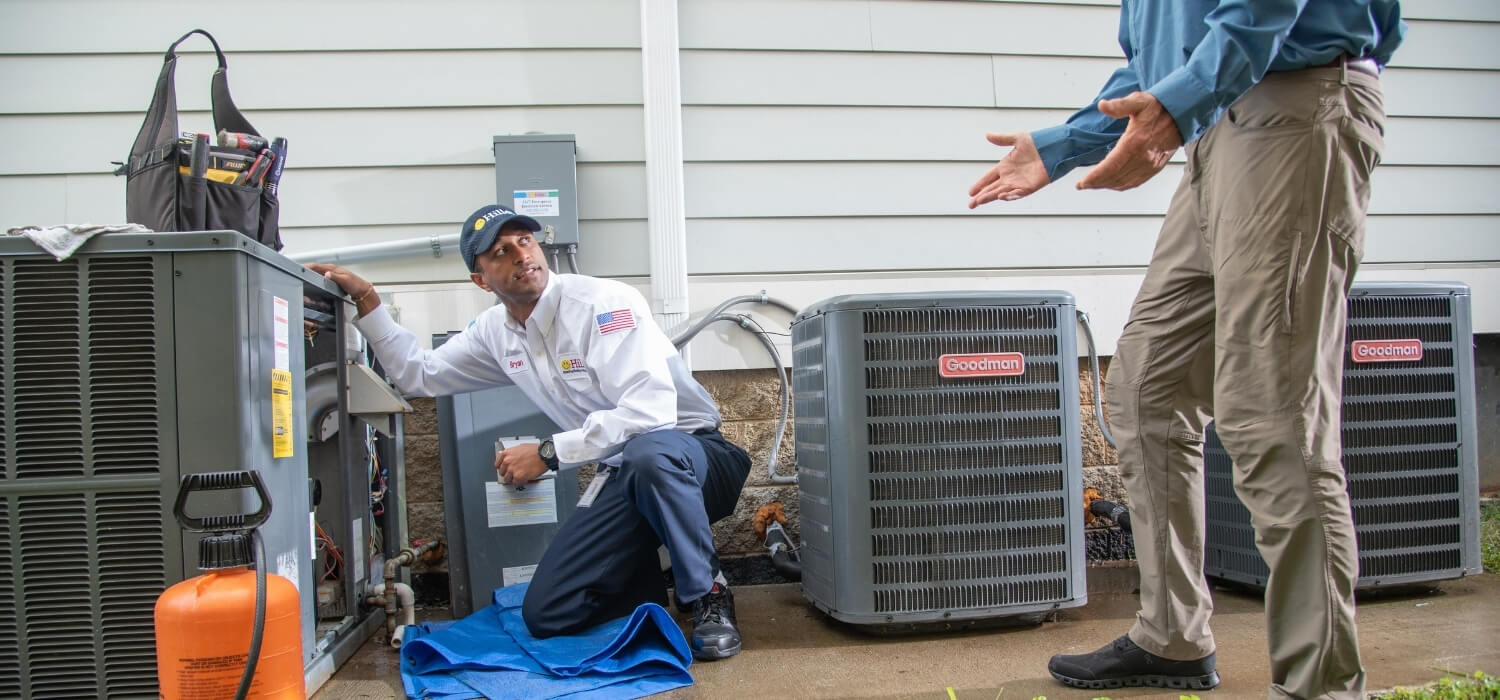
Each HVAC system is unique and can be made of different parts mentioned above. Some homeowners are unaware of which components their system is made up of. If you’re unsure, there are a few ways you can figure it out.
The easiest way is to simply check your home. You can find images and descriptions of the varying parts to determine what your system has. If you still aren’t sure, you may have a manual in your home that tells you.
If you still can’t figure it out, you can make an appointment with a professional HVAC technician. They can help you determine what type of system your new home has.
How to Extend the Lifespan of Your Unit
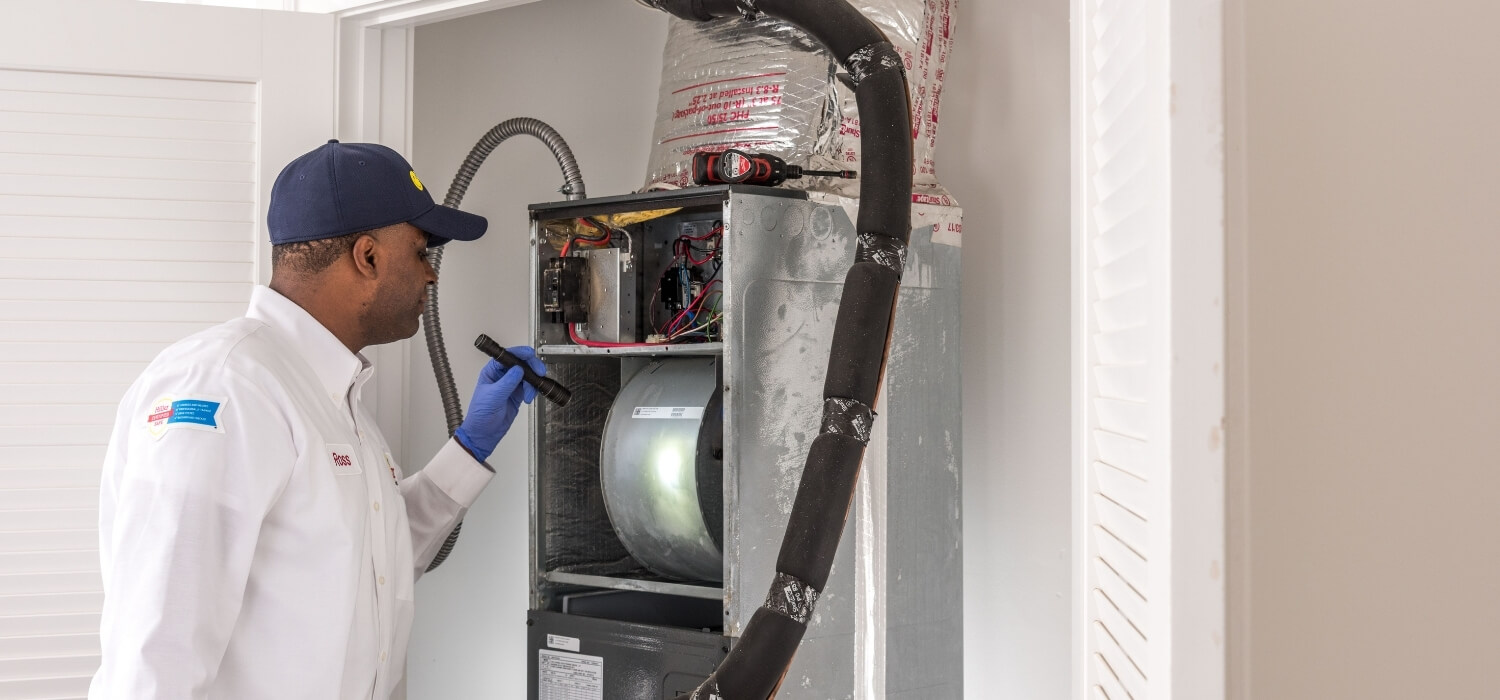
It’s important to remember that average lifespans should only be used to give you a general idea of how long your unit might last. Many considerations can extend or shorten the lifespan of your unit and its components.
Regular Maintenance
One of the most important things you can do to help extend your HVAC unit’s lifespan is to perform regular maintenance on each part, as required. All components should be visually inspected every few months for signs of leaks, corrosion, cracks, or other damage. In addition to visual inspections, you should also do the following:
- Have an HVAC technician inspect your system once a year
- Flush your gas or electric water tanks annually to reduce corrosion risk and buildup
- Change your home air filters regularly (at least four times a year)
- Keep trees and shrubs away from your outside AC unit
- Regularly remove debris from your outside AC unit
- Inspect and replace refrigerant regularly
- Address any apparent issues immediately, before they have a chance to get out of hand
Extending the Lifespan From the Start
There are ways you can extend the lifespan of your HVAC system from the very beginning. To get off on the right foot, always use the professional installation for all parts of your unit. Improper installation poses a few problems.
When units are improperly installed, they may not work correctly at all. If they do seem to work, there can be additional strain placed on the unit. This can decrease the estimated lifespan of components by up to half.
An HVAC technician can also help you ensure your unit is sized correctly for your home. This is another way you can extend the lifespan of your unit from the beginning.
A unit that’s too large for your home will heat or cool the residence too quickly. This causes the unit to turn on and shut off too frequently, which can wear it down.
If a unit is too small for your house, it will have to run continuously to keep the interior at a comfortable temperature. Running too long or too often can cause excess wear and tear.
Should You Fix or Replace Your System or Component?
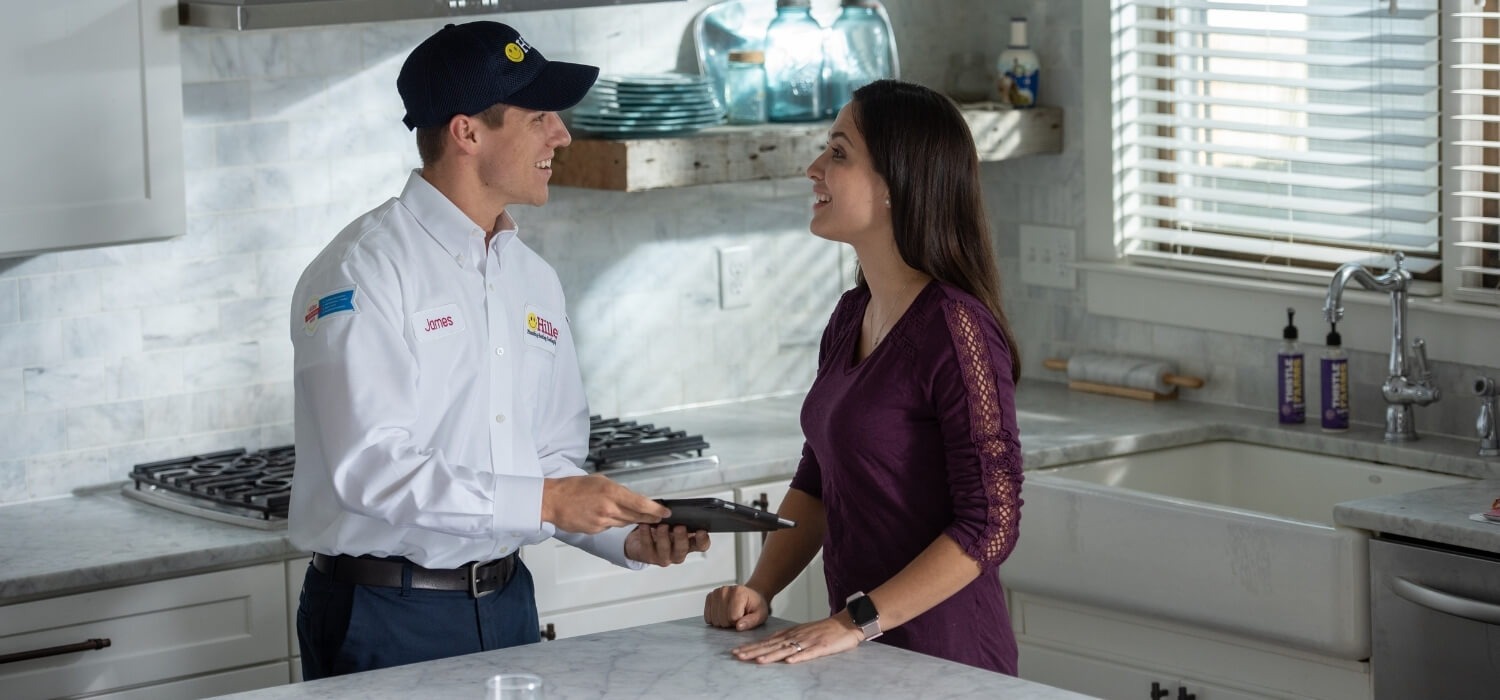
Sometimes it can be hard to determine whether to fix or replace something on your HVAC unit. As a general rule, there are two times when you should choose to replace something instead of repairing it.
Consider the Age of Your Unit
If your unit is within five years of the estimated lifespan, it’s usually better to replace it. Once something begins to reach the end of its lifespan, things will start to break, which is likely only the first of many problems. But there is one exception to this rule.
If a part needing replacement is minor, it may still be worth repairing it no matter how old your unit is. By minor, this means something that costs less than $100.
Consider the Cost to Repair
When determining whether to repair or replace an HVAC unit, the cost is an essential factor. You should replace something if the repair costs half or more of what a new one would.
In this scenario, it simply doesn’t make financial sense to repair. By making such a costly repair, you’re significantly lowering your return on investment (ROI). Besides this, when big things start breaking down, other issues will often follow.
Signs of HVAC System Problems

Throughout the lifespan of your HVAC unit, you’ll likely need some minor repairs to keep things running efficiently. It’s essential to learn how to recognize the signs you may have a problem with your system.
A few of the most common signs include:
- Home isn’t staying hot or cool
- Your system is continually turning on and off
- Your energy bills are significantly higher than usual
- You hear strange noises coming from your system
- The heating or cooling won’t turn on at all
This isn’t an all-inclusive list. If something seems off with your unit, it’s essential to get it looked at right away. When it starts as a small, cheap fix could turn into a massive, expensive problem if left untreated.
The Importance of Working With a Professional HVAC Technician
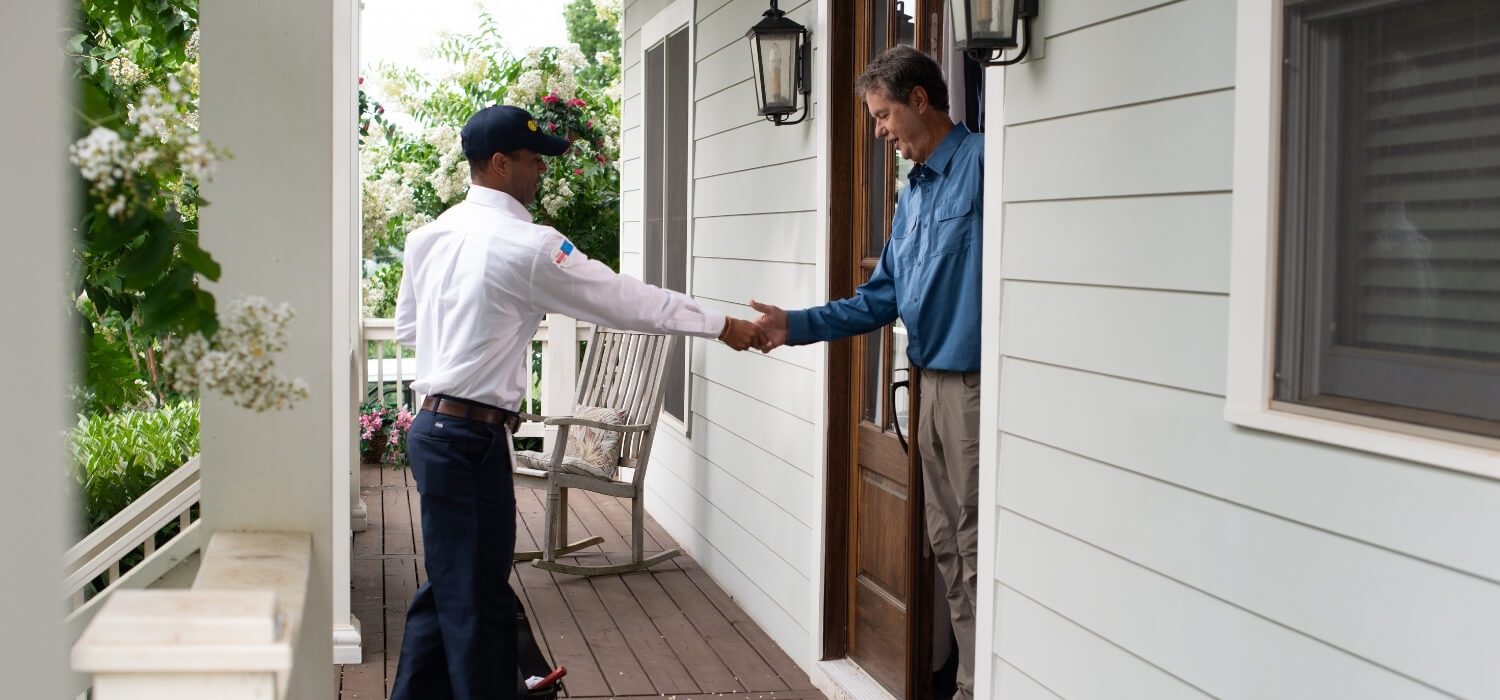
One of the best things you can do is work with a professional HVAC technician. If possible, work with the same company consistently. This way, the company knows your unit’s history and will be better able to diagnose issues.
But why should you work with an HVAC technician instead of going the do-it-yourself route?
HVAC systems are complex and, without the proper training, can be dangerous to work on. While you may feel confident draining your water heater annually by yourself, anything beyond the most basic upkeep needs to be handled by a professional. Burns, worsening breakages, and even explosions are possible when working on the varying components of your home’s system.
Finding the Best Company for You
You can find a company that works in your area with a simple google search. Type “HVAC repair near me” in the query bar. A list of local results should appear.
Choosing from these results can be done in two ways. First, you’ll want to check a company’s reputation by looking at online reviews or asking friends for recommendations. The more positive reviews a company has, the better.
You should also call a company before deciding to go with them. You can ask questions like:
- How much does routine annual maintenance cost?
- How quickly can your company respond to HVAC-related emergencies?
- What certifications do your company and its employees hold?
- Do your employees undergo background checks?
- Does your company hold general liability and workman’s comp insurance?
When talking to a company on the phone, get a feeling for their customer service. You can tell a lot about how much a company values its customers or prospective clients through this first phone call.
Do You Have More Questions About HVAC System Lifespans?

How long do HVAC systems last? The answer can vary, depending on the different components your system uses. You can help extend any HVAC system component’s average lifespan by using professional installation and routine maintenance.
Do you have more questions about HVAC system lifespans? Or would you like to set up an appointment for installation, repair, or maintenance of your home’s unit?
Contact us today. One of our team members would be happy to answer any questions you still have. They can also schedule you an appointment if you’d like.
 Daily Promotion
Daily Promotion
$500 Off Tankless Water Heater
Upgrade your comfort and give back this season.
Get Promotion